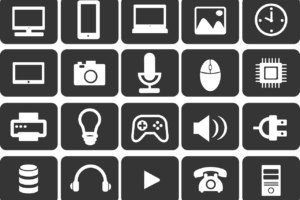The Myth of Multitasking: Why Focusing on One Thing Leads to Greater Productivity
- Posted by JD Kropman, PhD
- Categories Articles
- Date June 25, 2023
- Comments 0 comment

Multitasking has long been hailed as a desirable skill, symbolizing productivity and efficiency. Many individuals pride themselves on their ability to juggle multiple tasks simultaneously. However, neuroscience research challenges this notion, revealing that humans are not wired for true multitasking. In this article, we will explore the scientific evidence that supports the argument against multitasking and highlights the importance of focusing on one thing to achieve genuine productivity and progress.
The Illusion of Multitasking: Contrary to popular belief, the human brain is not designed to handle multiple complex tasks simultaneously. Instead, what appears as multitasking is actually rapid task-switching. Our brains toggle attention between different tasks, but we are unable to truly process and advance with multiple tasks simultaneously. This constant shifting of attention comes at a cost, as it depletes cognitive resources and impairs overall efficiency.
Cognitive Costs of Multitasking: Research has shown that engaging in multitasking significantly reduces productivity and increases errors. When we attempt to perform multiple tasks at once, our brains experience “attention residue,” where a portion of our attention remains stuck on the previous task even as we transition to the next one. This residue hinders focus, impairs performance, and leads to decreased overall quality of work.
The Myth of Efficiency: While multitasking may create an illusion of efficiency, studies indicate that it actually takes a toll on productivity. Rapidly switching between tasks incurs what is known as “switching costs” – the time and mental effort required to transition between different cognitive contexts. These costs accumulate, resulting in reduced speed, increased errors, and a longer overall time to complete tasks compared to focusing on one task at a time.
Deep Work and the Power of Focus: To truly make progress and achieve high-quality outcomes, deep work is essential. Deep work refers to the state of flow where one fully immerses oneself in a single task, dedicating undivided attention and concentration to it. By eliminating distractions and focusing on one thing at a time, we can tap into our highest levels of productivity and produce exceptional results.
Strategies for Fostering Focus: Developing a focus-oriented mindset and adopting effective strategies can enhance our ability to concentrate on one task at a time. Some techniques include:
Prioritization: Identify the most important task and allocate dedicated time and attention to it, blocking out distractions and interruptions.
Time Blocking: Set specific periods during the day for focused work on important tasks, creating uninterrupted time for deep work.
Single-Tasking: Embrace the practice of single-tasking, dedicating your full attention to one task before moving on to the next.
Environment Optimization: Create a workspace that minimizes distractions, such as noise, clutter, or digital interruptions, to maximize focus.
Mindfulness and Meditation: Cultivate mindfulness practices to enhance your ability to stay present and reduce mental clutter, allowing for sustained attention on the task at hand.
Conclusion: The prevailing notion of multitasking as a desirable and productive skill is debunked by neuroscience research. Humans are not wired to perform multiple complex tasks simultaneously; rather, we engage in task-switching, which comes with cognitive costs and compromises productivity. To achieve genuine progress and exceptional outcomes, we must prioritize focus and embrace deep work. By dedicating our attention to one task at a time, we can harness our full cognitive potential and experience the true power of productivity.
So, let us abandon the myth of multitasking and instead embark on a journey of intentional focus, unlocking our capacity for deep work and reaping the rewards of enhanced productivity, efficiency, and fulfillment in our pursuits.
You may also like

¿Y si no soy suficiente para emprender?

